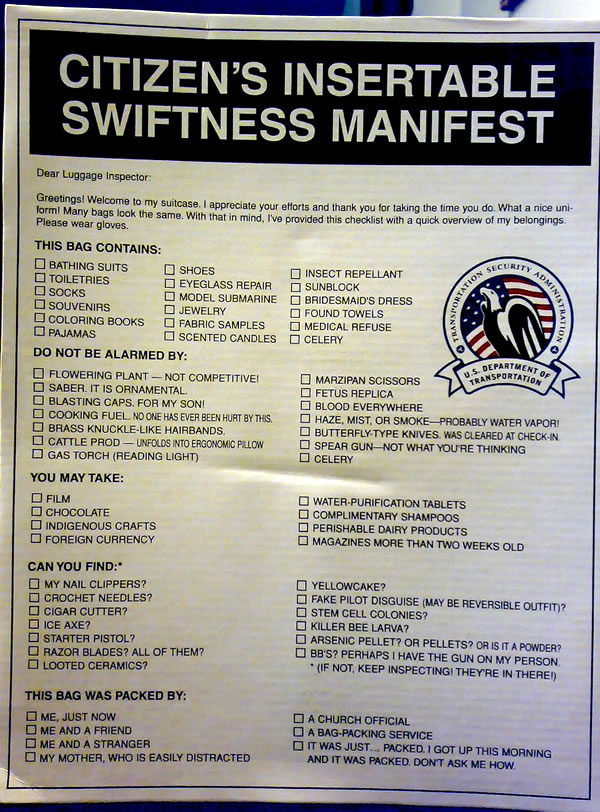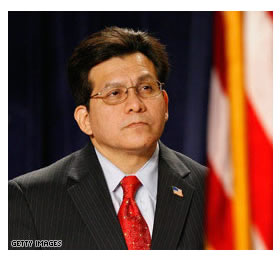
…well, according to The Beast’s list of the 50 most loathsome people in America for 2007, anyway. (And yes, we’ve got loathsome types of this sort in Canada as well.)
You
Charges
You believe in freedom of speech, until someone says something that offends you. You suddenly give a damn about border integrity, because the automated voice system at your pharmacy asked you to press 9 for Spanish. You cling to every scrap of bullshit you can find to support your ludicrous belief system, and reject all empirical evidence to the contrary. You know the difference between patriotism and nationalism — it’s nationalism when foreigners do it. You hate anyone who seems smarter than you. You care more about zygotes than actual people. You love to blame people for their misfortunes, even if it means screwing yourself over. You still think Republicans favor limited government. Your knowledge of politics and government are dwarfed by your concern for Britney Spears’ children. You think buying Chinese goods stimulates our economy. You think you’re going to get universal health care. You tolerate the phrase “enhanced interrogation techniques.” You think the government is actually trying to improve education. You think watching CNN makes you smarter. You think two parties is enough. You can’t spell. You think $9 trillion in debt is manageable. You believe in an afterlife for the sole reason that you don’t want to die. You think lowering taxes raises revenue. You think the economy’s doing well. You’re an idiot.
Exhibit A
You couldn’t get enough Anna Nicole Smith coverage.
Sentence
A gradual decline into abject poverty as you continue to vote against your own self-interest. Death by an easily treated disorder that your health insurance doesn’t cover. You deserve it, chump.


 It’s nice to start the working week with some good news:
It’s nice to start the working week with some good news: 
